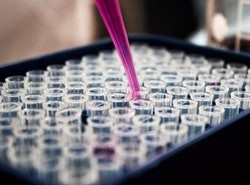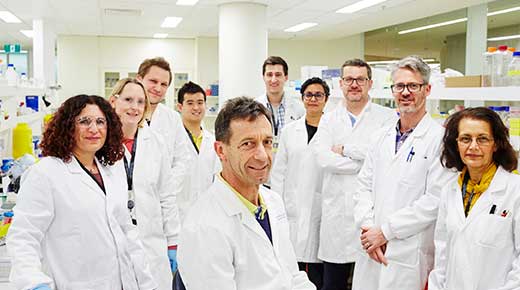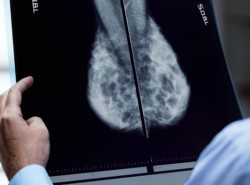
New treatments for inflammatory breast cancer
Published: 10/10/19 12:21 AM

Matthias Ernst
Inflammatory breast cancer is a rare but aggressive form of breast cancer. At diagnosis those with inflammatory breast cancer often already have an advanced stage of the disease and may not respond to standard treatments such as chemotherapy.
The 5-year survival rate for inflammatory breast cancer patients is less than 40 per cent, significantly lower than the average 5-year survival rate for breast cancer overall of 90 per cent, making more research into this subtype of breast cancer vitally important.
NBCF-funded researcher Professor Matthias Ernst and his team have previously shown that inflammatory breast cancers often produce inflammatory molecules, including a protein called interleukin-6.
Interleukin-6 helps to promote the growth of inflammatory breast cancer and may be responsible for its resistance to chemotherapy.
This study aims to build on that knowledge to test drugs that are approved for use in other diseases (leukaemia and rheumatoid arthritis) to see if they can overcome the tumour’s resistance to treatment so cancer cells in inflammatory breast cancer can be destroyed.
This study is important because it could pave the way for a clinical trial based on different combinations of these drugs, and which could include patients diagnosed with inflammatory breast cancer who are often excluded from trials because this type of breast cancer responds so differently to current treatments.
Professor Ernst aims to increase our molecular understanding of this rare breast cancer and develop effective treatments that can save lives. He also intends to use the shared knowledge about inflammatory breast cancer to raise awareness and educate health professionals so that treatment and care of women with the disease improves faster.

